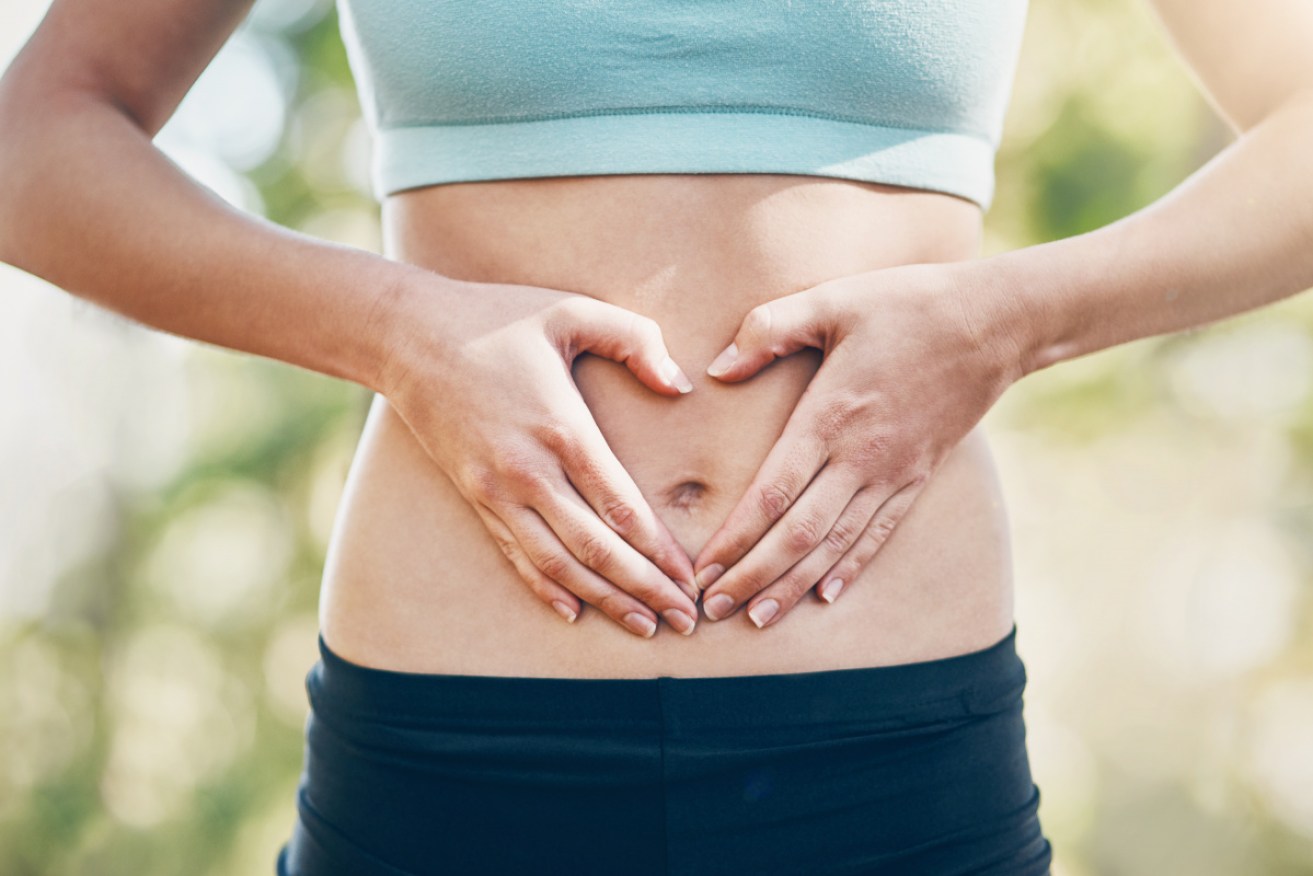Go with your gut: A nutritionist’s guide to good intestinal health

There is a growing link between our gut microbiome and disease. Photo: Getty
If you’ve never listened to your gut, it’s time to start paying attention because it could be your body’s most vital disease-fighting system.
We’ve long known the gut is responsible for taking in and absorbing nutrients and water.
However, increasing research has linked gut health with the immune system, mental health, diabetes, skin conditions and cancer. Now, there’s a growing focus on how the gut and the brain communicate, called the gut-brain axis.
It seems you really are what you eat. Here’s why.
The gut contains millions and trillions of micro-organisms, called gut microbiota or gut flora, that are critical to its health.
Gut microbes convert food into energy, protect us against disease-causing bacteria, viruses and other micro-organisms, and produce chemicals that affect how the brain works.
Gut and gut microbes also play an important role in the immune system, and inflammatory response, by controlling what is absorbed into the body, and what is excreted.
For instance, Alzheimer’s researchers have begun testing various diets to measure their effect on the activity of intestinal bacteria and, subsequently, our brain function. One trial in mice found that brain health improved with a ketogenic diet.
Another body of work is exploring how a high salt diet can play havoc with our guts. It’s believed that too much salt triggers an inflammatory response that damages the lining of blood vessels, depriving the brain of oxygen and increasing the risk of Alzheimer’s.
It’s early days for this research, but already it seems increasingly clear we need to look after our gut flora.
The good news is that there are things we can do to improve our gut health.

Wholefoods such as vegetables are high in fibre and natural prebiotics. Photo: Getty
Enjoy a diverse diet, for a diverse microbiota
Thousands of species of microbes – good and bad – have been identified in the gut. Eating a varied diet can lead to diverse microbiota, which is generally considered healthy.
A diverse diet includes a wide variety of fruits, vegetables and wholegrains. These provide different nutrients to help different bacteria to grow.
Changes to gut microbiota can occur within days of changing diet. Western diets and lifestyle practices have a negative effect on the gut’s beneficial bacteria. Western dietary choices commonly exclude food products from animals and plants, which reduce diversity of the microbiota.
Eat plenty of whole foods
Fruits and vegetables are the best source of nutrients for a healthy gut. They are high in fibre, which is beneficial for gut health.
There are two main types of fibre; soluble and insoluble. Soluble fibres can dissolve in water in the gut and form a gel-like substance, which slows down the breakdown and absorption of carbohydrates. In turn, this helps control blood sugar levels.
Insoluble fibre does not dissolve in water. Instead, it passes through the digestive system, and can keep food and waste moving through the gut, improving bowel regularity, reducing constipation.
Soluble fibres can be digested by certain bacteria in the gut, which stimulates their growth in the large intestine. Some types of fibre, known as prebiotics, are particularly good at this.
Foods that are naturally high in prebiotics include:
- Vegetables (particularly onions, asparagus, beetroot, fennel, peas, savoy cabbage);
- Legumes (chickpeas, lentils, red kidney beans, baked beans, soy beans);
- Fruit, including nectarines, watermelon, grapefruit, dried dates and figs;
- Breads and cereals, including barley, rye and rye crackers, oats, wheat bran and wheat bread;
- Nuts and seeds (particularly pistachios and cashew nuts).
Increase intake of probiotics
The best way to have a healthy gut is to eat whole foods that are high in fibre.
However, sometimes – particularly after a course of antibiotic uses or if you’re recovering from an illness – you might need an extra dose of the good gut bacteria, called a probiotic.
Probiotics are live micro-organisms that have a specific benefit, such as strengthening the immune system and boosting gastrointestinal health. They don’t permanently change gut microbiota.
Not all products that contain “live bacteria” are probiotic. A probiotic must survive the acid environment in the stomach, and must boost the gut’s good bacteria.
Probiotics are found in dairy products, such as yoghurt and aged cheeses. Look on the ingredients list for live cultures of bacteria (for example, bifidobacteria and lactobacilli).
They are also present in fermented vegetables, such as kimchi and sauerkraut, and pickled vegetables, such as onions and gherkins.

Drinking water is cheap, easy and surprisingly good for your gut health. Photo: Getty
Drink plenty of water
Water intake has been shown to aid the lining of the intestines, as well as help balance good bacteria in the gut, and to improve bowel regularity.
Reduce alcohol consumption
Chronic alcohol consumption can cause serious problems, including an imbalance of gut bacteria, known as dysbiosis.
Clare Farrand is a public health nutritionist with The George Institute for Global Health.








